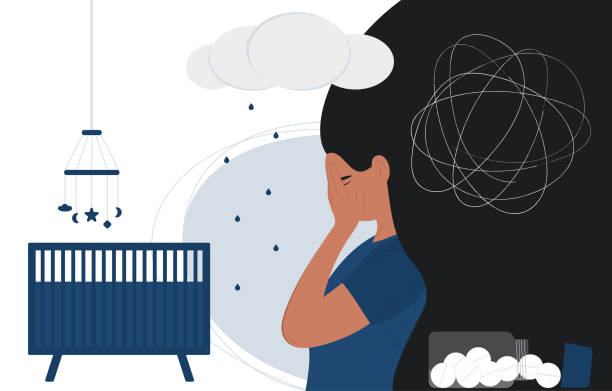Women’s Mental Health
Women’s Mental Health is a complicated and complex subject that incorporates a comprehensive exhibit of variables, including natural, mental, and social aspects. As we dig into this many-sided domain, it becomes essential to recognize the extraordinary difficulties ladies face in keeping up with their mental prosperity. We will reveal insight into different parts of women’s mental health, looking into organic elements, cultural impacts, mental health problems, and the significance of all-encompassing ways to deal with and cultivate mental prosperity.

Organic Variables:
Understanding women’s mental health requires an assessment of the organic factors that contribute to their mental prosperity. Hormonal changes, especially during the feminine cycle, pregnancy, and menopause, can fundamentally affect temperament, nervousness levels, and, by and large, mental health. Estrogen and progesterone, two vital chemicals in the female regenerative framework, assume urgent roles in controlling temperament, discernment, and profound states. Changes in these chemicals can lead to conditions like premenstrual condition (PMS), postpartum anxiety, and perimenopausal state of mind problems.
Moreover, hereditary inclinations might impact women’s vulnerability to mental health issues. The research proposes that specific genetic elements can contribute to the improvement of conditions like misery, nervousness, and bipolar disorder. Understanding the relationship between hereditary qualities and mental health is crucial to creating designated interventions and customized treatment plans.
Cultural Impacts:
The cultural setting fundamentally influences women’s mental health, with social assumptions, orientation jobs, and financial variables assuming crucial parts. Cultural tensions and generalizations can create unnecessary pressure and add to Mental Health challenges for ladies. The cultural assumption for ladies to satisfy conventional jobs as parental figures, homemakers, and experts frequently prompt a fragile, strenuous exercise, possibly expanding pressure and nervousness.
Also, cultural standards around self-perception and magnificence norms can contribute to advancing dietary issues and low confidence among ladies. The steady strain to adjust to unreasonable goals can negatively affect mental prosperity, underscoring the requirement for a more comprehensive and body-positive cultural story.

Mental Health Issues:
Different mental health problems excessively influence ladies, and understanding these circumstances is vital for compelling mediation and backing. Melancholy and tension problems are more common in ladies than men, with hormonal vacillations, natural elements, and socio-social impacts adding to these distinctions in sexual orientation.
Postpartum anxiety is a particular mental health challenge that influences women after labor. The hormonal movements during pregnancy and the postpartum time frame, combined with the vast life-altering events related to parenthood, can contribute to the improvement of burdensome side effects. Early discovery and mediation are essential to tending to postpartum anxiety and advancing the prosperity of the two moms and babies.
Dietary problems, for example, anorexia nervosa and bulimia nervosa, likewise excessively influence women. Cultural tensions connected with self-perception and magnificence norms can improve undesirable nutritional patterns and misshaped impressions of self-perception. A comprehensive methodology that consolidates mental help, healthy direction, and cultural mindfulness is fundamental for tending to dietary problems in women.
All-encompassing ways to deal with women’s mental health:
Perceiving the multi-layered nature of women’s mental health, all-encompassing methodologies that address physical, mental, and social perspectives are vital. Coordinating mental health into routine medical care work, advancing open exchanges, and decreasing the shame of seeking help are fundamental stages in cultivating a steady climate.
Schooling and mindfulness missions can play a significant role in testing cultural standards that add to mental health challenges for women. By advancing an additional comprehensive and tolerating story, we can establish a climate where ladies feel engaged to focus on their mental prosperity, unafraid of judgment or separation.
Moreover, access to mental health assets and services should be improved to guarantee that ladies have the help they need. This incorporates destigmatizing mental health care, expanding the accessibility of reasonable advising administrations, and coordinating mental health into essential medical service settings.
Final Words
Women’s mental health is a dynamic and complicated field impacted by a bunch of elements, including science, society, and mental health problems. To encourage a steady climate for ladies, it is fundamental to perceive and address their extraordinary difficulties. By grasping the organic variables, cultural impacts, and explicit mental health problems that influence women, we can foster designated mediations and comprehensive methodologies that advance mental prosperity.
Making the general public aware of and supporting women’s mental health requires an aggregate effort. It includes testing cultural standards, lessening shame, and guaranteeing admittance to exhaustive mental health administrations. As we push ahead, focusing on examination, training, and promotion is significant to make a reality where ladies can flourish intellectually, inwardly, and honestly. By supporting ladies’ personalities, we contribute to a better, more evenhanded society.

FAQs
What are the typical mental health challenges that women face?
Ladies frequently experience mental health difficulties, for example, sorrow, nervousness problems, dietary issues, and postpartum anxiety. Natural variables, hormonal changes, and cultural tensions add to these difficulties.
How do hormonal vacillations affect women’s mental health?
Hormonal changes during periods, pregnancy, and menopause can impact temperament, perception, and profound states. Vacillations in estrogen and progesterone levels might add to conditions like premenstrual disorder (PMS), postpartum anxiety, and perimenopausal mindset issues.
Are ladies more defenseless to specific mental health problems than men?
Indeed, ladies are bound to encounter conditions, for example, misery and nervousness problems, compared with men. The exchange of organic, mental, and social variables adds to these distinctions in sexual orientation.
What is postpartum anxiety, and how could it be dealt with?
Post-pregnancy anxiety is a type of sadness that happens after labor. Hormonal changes, lack of sleep, and the difficulties of parenthood add to its turn of events. Treatment might incorporate treatment, support gatherings, and, now and again, medicine.
How do cultural assumptions influence women’s mental health?
Cultural assumptions connected with customary orientation jobs, self-perception, and magnificence norms can add to the pressure, tension, and low confidence among ladies. Testing these standards and advancing inclusivity is fundamental to supporting women’s mental health.
What role do hereditary qualities play in women’s mental health?
Genetic elements can impact a woman’s powerlessness and mental health problems. Specific attributes might incline people toward conditions like wretchedness, tension, and bipolar issues. Understanding hereditary commitments is significant for customized treatment.
